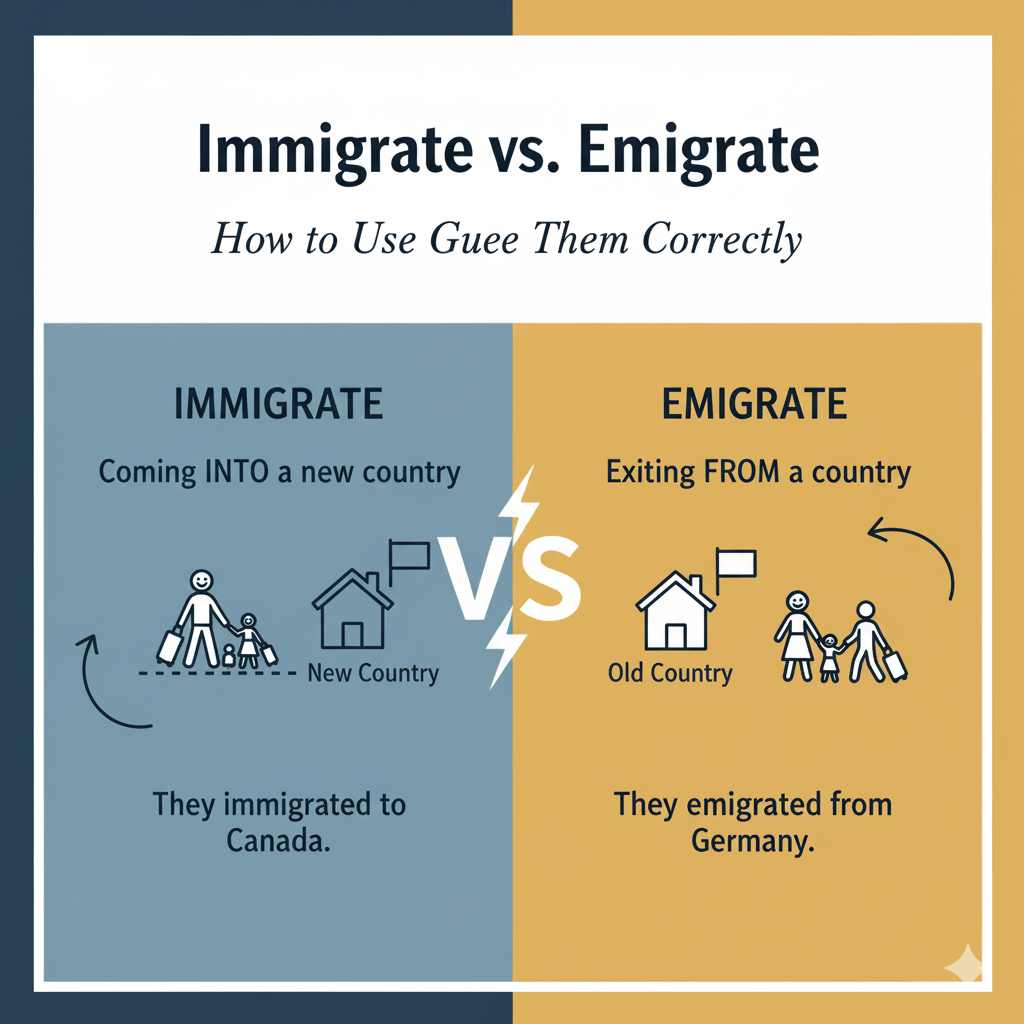Immigrate vs. Emigrate: How to Use Them Correctly

These two words look almost the same—and that’s why they confuse so many people.
Midoo AI will help you finally understand the difference between “immigrate” and “emigrate,” so you can use them with confidence in your writing and speaking.
What “Immigrate” Means
Immigrate means to move into a new country to live there permanently.
It focuses on where you are going.
Examples:
- My parents immigrated to Canada from Brazil.
- She immigrated to the U.S. for a better job.
📝 Tip from Midoo: If you are talking about arriving, use immigrate.
What “Emigrate” Means
Emigrate means to leave your own country to go live in another one.
It focuses on where you are leaving from.
Examples:
- They emigrated from Italy in the 1990s.
- He plans to emigrate from India next year.
📝 Tip from Midoo: If you are talking about leaving, use emigrate.
How to Remember the Difference
Here’s a simple trick:
- Immigrate = In → move into a country
- Emigrate = Exit → leave a country
Once you link the first letter to the meaning, it becomes easy to remember!
Common Mistakes to Avoid
- ❌ “He emigrated to the U.S.” → Wrong
- ✅ “He immigrated to the U.S.” → Correct
- ❌ “She immigrated from Spain.” → Wrong
- ✅ “She emigrated from Spain.” → Correct
Remember: to + immigrate / from + emigrate
Why It Matters
Using the right word helps people understand your sentence clearly.
Midoo AI often teaches pairs like this, so you won’t mix them up again.
Clear language builds strong communication—and that’s what learning English is all about. 🌍
FAQs
Q: Are “immigrate” and “emigrate” opposites?
A: Yes. One is about entering a country (immigrate) and the other is about leaving a country (emigrate).
Q: Can I say “immigrate from”?
A: It’s grammatically possible, but it sounds unnatural. Use “emigrate from” and “immigrate to”.
Q: What about “migrate”?
A: “Migrate” is a general word that just means moving from one place to another, without saying from or to.